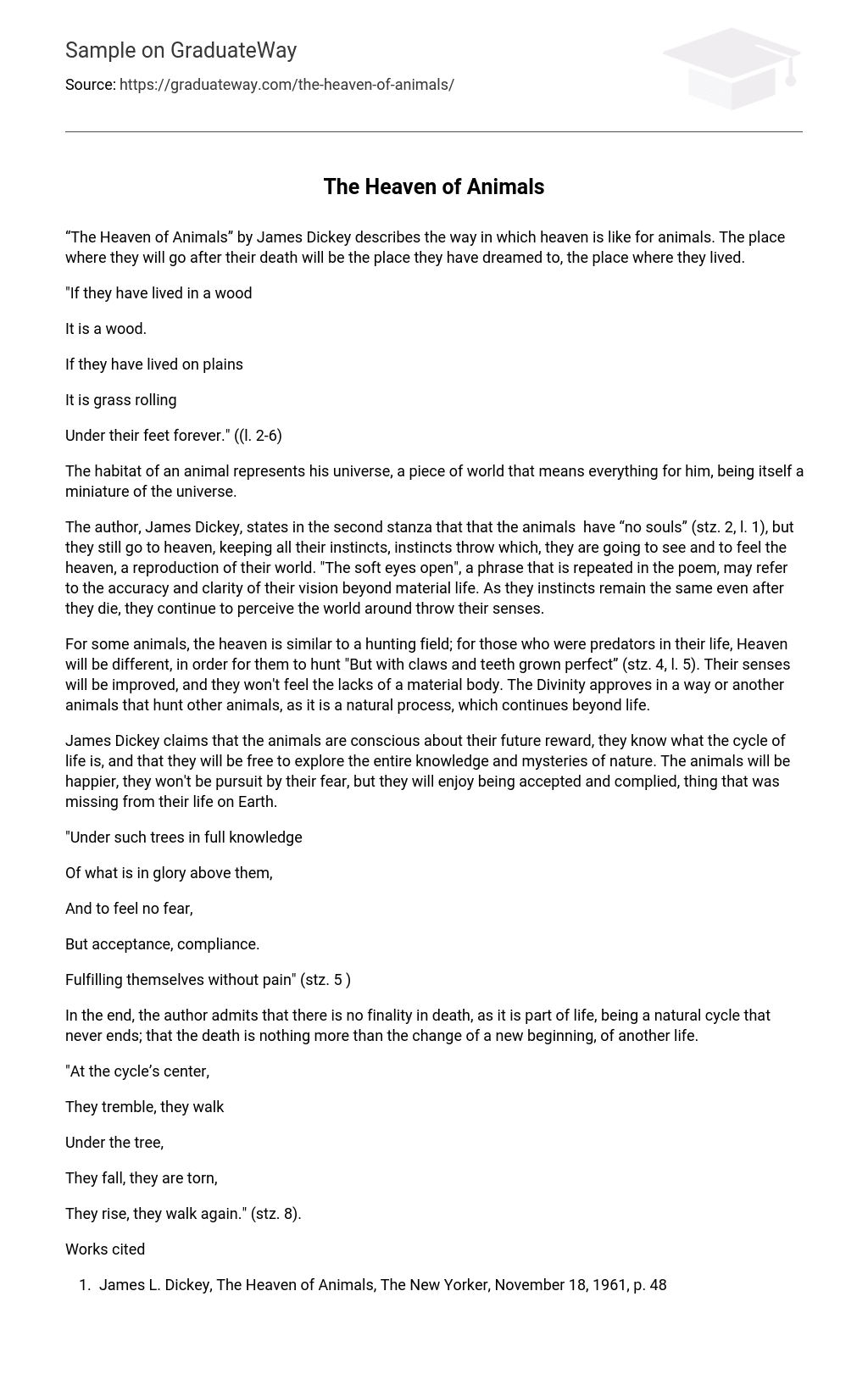“The Heaven of Animals” by James Dickey describes the way in which heaven is like for animals. The place where they will go after their death will be the place they have dreamed to, the place where they lived.
“If they have lived in a wood
It is a wood.
If they have lived on plains
It is grass rolling
Under their feet forever.” ((l. 2-6)
The habitat of an animal represents his universe, a piece of world that means everything for him, being itself a miniature of the universe.
The author, James Dickey, states in the second stanza that that the animals have “no souls” (stz. 2, l. 1), but they still go to heaven, keeping all their instincts, instincts throw which, they are going to see and to feel the heaven, a reproduction of their world. “The soft eyes open”, a phrase that is repeated in the poem, may refer to the accuracy and clarity of their vision beyond material life. As they instincts remain the same even after they die, they continue to perceive the world around throw their senses.
For some animals, the heaven is similar to a hunting field; for those who were predators in their life, Heaven will be different, in order for them to hunt “But with claws and teeth grown perfect” (stz. 4, l. 5). Their senses will be improved, and they won’t feel the lacks of a material body. The Divinity approves in a way or another animals that hunt other animals, as it is a natural process, which continues beyond life.
James Dickey claims that the animals are conscious about their future reward, they know what the cycle of life is, and that they will be free to explore the entire knowledge and mysteries of nature. The animals will be happier, they won’t be pursuit by their fear, but they will enjoy being accepted and complied, thing that was missing from their life on Earth.
“Under such trees in full knowledge
Of what is in glory above them,
And to feel no fear,
But acceptance, compliance.
Fulfilling themselves without pain” (stz. 5 )
In the end, the author admits that there is no finality in death, as it is part of life, being a natural cycle that never ends; that the death is nothing more than the change of a new beginning, of another life.
“At the cycle’s center,
They tremble, they walk
Under the tree,
They fall, they are torn,
They rise, they walk again.” (stz. 8).
Works cited
- James L. Dickey, The Heaven of Animals, The New Yorker, November 18, 1961, p. 48





